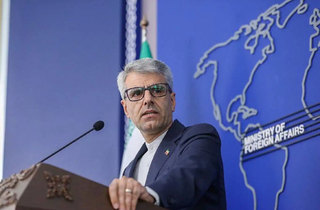The sanctions, announced on Monday, target the Islamic Republic of Iran Shipping Lines (IRISL), its director Mohammad Reza Khiabani, and other individuals and entities accused of supplying drones and missiles to Russia for use in the Ukraine conflict.
The EU measures include restrictions on vessels, ports, and docks controlled by the sanctioned parties, effectively barring transactions with them. Britain followed suit, freezing the assets of IRISL and Iran Air on similar accusations.
The EU alleges that the targeted entities transported Iranian-made unmanned aerial vehicles (UAVs) and missile components to Russia. Iranian officials have categorically denied these allegations.
Safaei, who also heads the Ports and Maritime Organization, rejected the accusations, describing IRISL as a "completely commercial and trading" entity focused on facilitating goods transport for Iran and other nations. He highlighted that IRISL, one of West Asia's largest shipping companies, plays a critical role in importing essential goods to Iran, particularly in the Caspian Sea region.
“The EU’s accusations are completely illusionary,” Safaei told IRNA, adding that the sanctions would harm the livelihoods of ordinary Iranians. Despite the restrictions, he affirmed Iran’s ability to maintain foreign trade through maritime routes with global partners.
Foreign Ministry spokesperson Esmaeil Baghaei, during his weekly press briefing, also condemned the sanctions, accusing the EU of acting on "groundless claims." He criticized European nations for persisting with accusations even after Ukrainian officials reportedly acknowledged that no Iranian ballistic missiles have been delivered to Russia.
“Under these circumstances, European countries were expected to reconsider their claims,” Baghaei said. “But it seems that some insist on their own approach.”
Foreign Minister Abbas Araghchi echoed this sentiment on social media platform X, accusing the EU of targeting Iran’s shipping industry under a "non-existent missile pretext."
The United States and its allies have repeatedly accused Iran of supplying ballistic missiles to Russia for use in Ukraine—a charge Tehran has consistently denied. Iranian officials have emphasized the country’s neutrality in the conflict, asserting that Western nations are exacerbating the war by providing advanced weaponry to Ukraine.
President Volodymyr Zelensky of Ukraine has reportedly stated that no Iranian ballistic missiles have been delivered to Russia, further calling into question the basis for the sanctions.
The sanctions represent the latest escalation in Western pressure on Iran amid ongoing geopolitical tensions. Iran has vowed to continue its maritime trade and resist actions that undermine its national interests.
“These measures are not only unjust but also harmful to global trade and economic stability,” Safaei warned, underscoring Iran’s resilience against external economic pressures.
The development underscores the deepening divide between Iran and Western nations, with sanctions remaining a contentious tool in the broader geopolitical standoff. (ILKHA)



 Güncel
Güncel
 Dünya
Dünya
 Güncel
Güncel
 Güncel
Güncel
 Güncel
Güncel
 Dünya
Dünya
 Dünya
Dünya
 Dünya
Dünya
 Güncel
Güncel
 Güncel
Güncel





